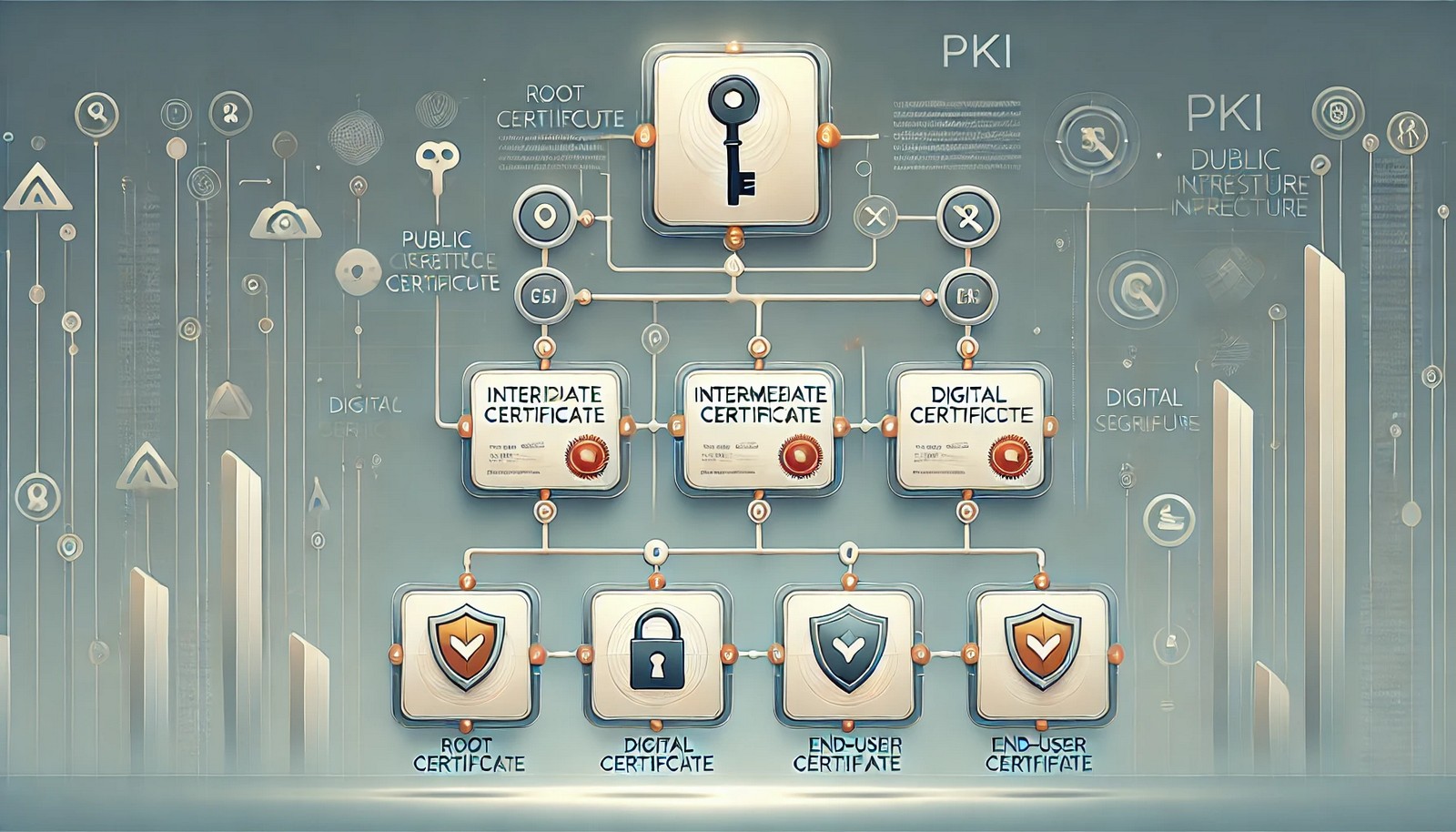Intermediate Certificate
 (Representational Image | Source: Dall-E)
(Representational Image | Source: Dall-E)
Quick Navigation:
- Intermediate Certificate Definition
- Intermediate Certificate Explained Easy
- Intermediate Certificate Origin
- Intermediate Certificate Etymology
- Intermediate Certificate Usage Trends
- Intermediate Certificate Usage
- Intermediate Certificate Examples in Context
- Intermediate Certificate FAQ
- Intermediate Certificate Related Words
Intermediate Certificate Definition
An Intermediate Certificate is a digital security certificate issued by a trusted Certificate Authority (CA) that acts as a bridge between the root certificate and end-user certificates. It ensures secure communications by authenticating SSL/TLS certificates and maintaining trust in Public Key Infrastructure (PKI).
Intermediate Certificate Explained Easy
Imagine you have a signed permission slip from your school principal, but it goes through your teacher first. Your teacher has authority because they received permission from the principal. The Intermediate Certificate works the same way—it is issued by a trusted CA and helps validate other certificates.
Intermediate Certificate Origin
The concept of digital certificates originated from cryptographic research in the late 20th century. Intermediate certificates became widely used with the rise of SSL/TLS encryption protocols to establish trusted communication.
Intermediate Certificate Etymology
The term Intermediate Certificate comes from the word “intermediate,” meaning "between two points," as it serves as a link between the Root Certificate and End-User Certificates in a certificate chain.
Intermediate Certificate Usage Trends
The adoption of Intermediate Certificates has surged with the expansion of internet security protocols. Modern websites must maintain HTTPS encryption using valid SSL/TLS certificates, making these certificates crucial for security.
Intermediate Certificate Usage
- Formal/Technical Tagging:
- SSL/TLS
- Cybersecurity
- Public Key Infrastructure (PKI) - Typical Collocations:
- "SSL intermediate certificate"
- "certificate authority intermediate certificate"
- "intermediate certificate chain"
Intermediate Certificate Examples in Context
- A website administrator must install the Intermediate Certificate along with their SSL/TLS certificate to ensure trust.
- Without an Intermediate Certificate, some browsers may display a “certificate not trusted” warning.
- Many organizations use Intermediate Certificates to securely issue authentication credentials.
Intermediate Certificate FAQ
- What is an Intermediate Certificate?
An Intermediate Certificate is a security certificate issued by a CA to validate SSL/TLS certificates while keeping the root CA secure. - Why do we need Intermediate Certificates?
They add a layer of security by keeping the root certificate offline. - How is an Intermediate Certificate different from a Root Certificate?
A Root Certificate is the ultimate authority, while an Intermediate Certificate signs and validates other certificates. - How do Intermediate Certificates affect website security?
They ensure browsers trust a website’s SSL/TLS certificate. - What happens if an Intermediate Certificate expires?
All certificates issued under it become untrusted, causing security issues. - How do I install an Intermediate Certificate?
It is provided by the Certificate Authority (CA) and must be installed on the web server. - Are Intermediate Certificates unique for each CA?
Yes, different CAs issue their own Intermediate Certificates. - What role does an Intermediate Certificate play in HTTPS?
It establishes trust between a website and its visitors. - Can a website function without an Intermediate Certificate?
No, most browsers will not trust the site’s SSL/TLS certificate. - Is an Intermediate Certificate required for all SSL/TLS installations?
Yes, unless using a self-signed root certificate, which is uncommon.
Intermediate Certificate Related Words
- Categories/Topics:
- Cybersecurity
- Web Encryption
- Digital Certificates
Did you know?
In 2011, a fraudulent Intermediate Certificate issued by DigiNotar led to major security breaches, causing browsers to revoke trust in the CA.
Authors | Arjun Vishnu | @ArjunAndVishnu

PicDictionary.com is an online dictionary in pictures. If you have questions or suggestions, please reach out to us on WhatsApp or Twitter.
I am Vishnu. I like AI, Linux, Single Board Computers, and Cloud Computing. I create the web & video content, and I also write for popular websites.
My younger brother, Arjun handles image & video editing. Together, we run a YouTube Channel that's focused on reviewing gadgets and explaining technology.
















Comments (0)
Comments powered by CComment